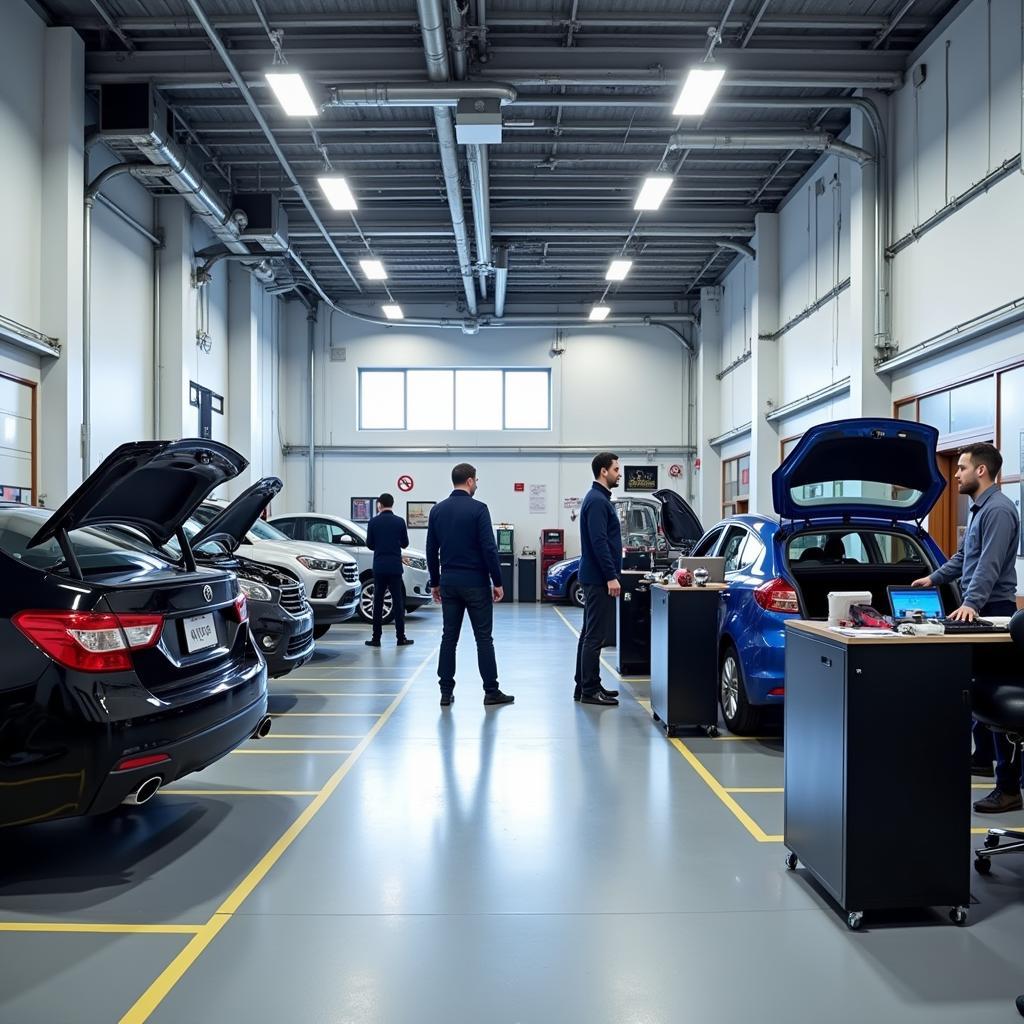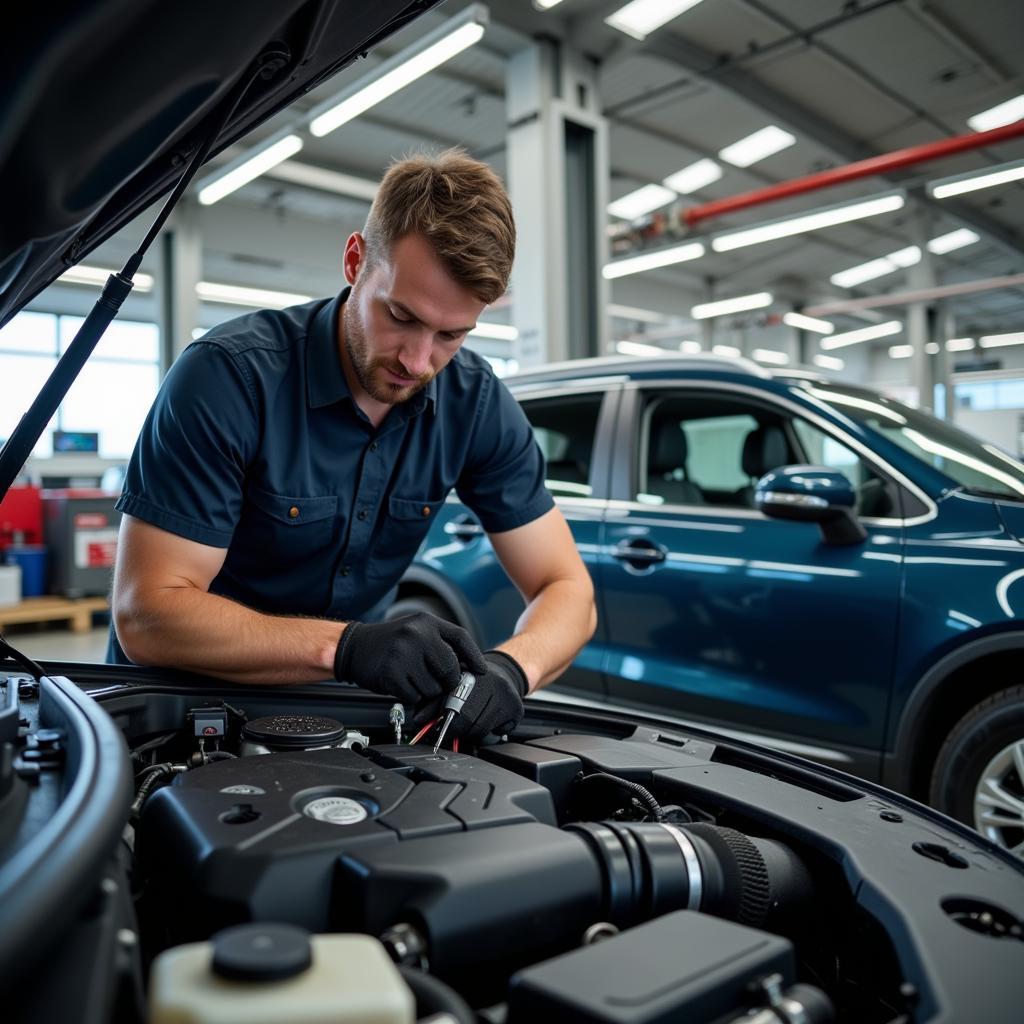When Should a New Car be Serviced?
Owning a brand new car is exhilarating. The smell, the shine, the feel of the untouched interior – it’s a beautiful thing. But amidst the excitement, a question often arises: When Should A New Car Be Serviced? Many new car owners assume they have a grace period before needing to visit a mechanic, but is that actually true? Let’s delve into the specifics.
Debunking the “New Car Grace Period” Myth
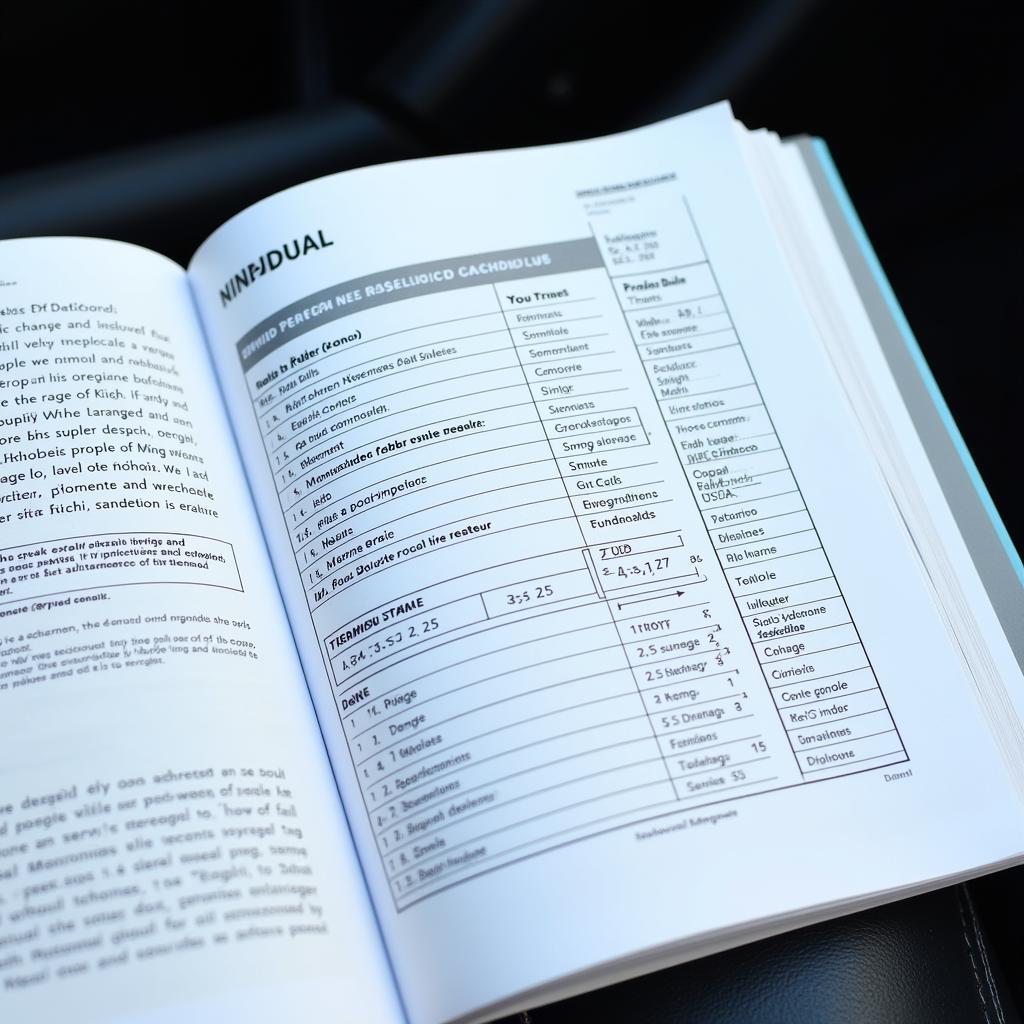 New Car Service Schedule
New Car Service Schedule
Contrary to popular belief, there’s no magic grace period for new cars. While modern vehicles are built to withstand the test of time, regular maintenance is essential right from the start. In fact, delaying service could void your warranty and lead to premature wear and tear.
Decoding Your Car’s Service Schedule
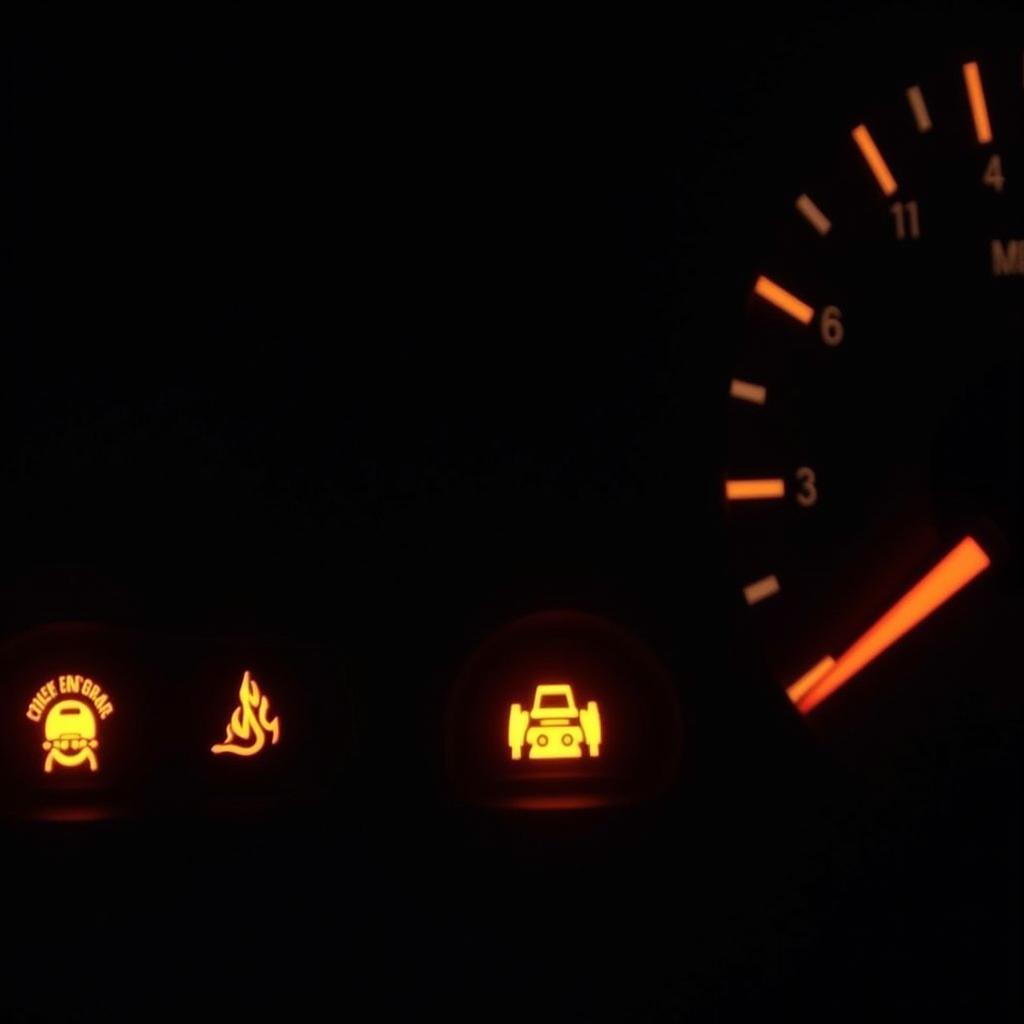 Car Dashboard Warning Lights
Car Dashboard Warning Lights
The most crucial document in determining your car’s service needs is the owner’s manual. This handbook provides a detailed service schedule tailored to your specific make and model. It outlines recommended intervals for oil changes, tire rotations, fluid checks, and other routine maintenance tasks.
Typical Service Intervals for New Cars
While service schedules vary, most new cars will require their first check-up within the first 6 months or 5,000 miles, whichever comes first. Subsequent services usually occur every 6 months or 5,000-7,500 miles.
Factors Influencing Service Intervals
Several factors can affect how often your new car needs servicing, including:
-
Driving Conditions: Frequent stop-and-go city driving or driving in extreme weather conditions (heat, cold, dust) can put more strain on your car, necessitating more frequent service visits.
-
Driving Style: Aggressive acceleration and braking can also lead to faster wear and tear, requiring earlier service appointments.
-
Oil Type: Certain types of oil, like synthetic oil, offer longer lifespan and performance compared to conventional oil, potentially extending the intervals between oil changes.
Listening to Your Car: Warning Signs Not to Ignore
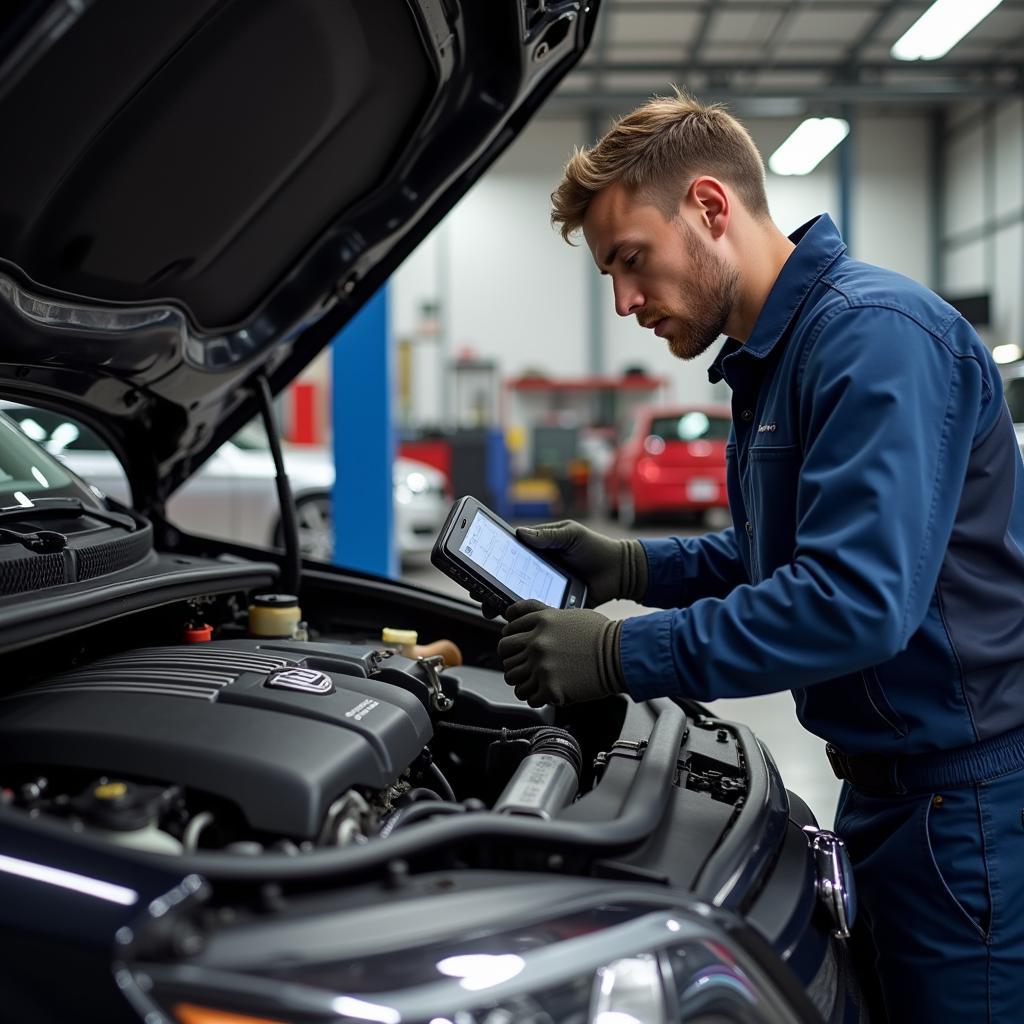 Mechanic Inspecting Car Engine
Mechanic Inspecting Car Engine
Beyond scheduled maintenance, it’s crucial to pay attention to any unusual noises, smells, or warning lights. These can be early indicators of a problem that needs immediate attention.
- Unusual noises: Grinding, squeaking, or knocking sounds.
- Fluid leaks: Puddles of oil, coolant, or other fluids under your car.
- Warning lights: Check engine light, oil pressure light, or other dashboard warnings.
“Ignoring warning signs can lead to more extensive and costly repairs down the line,” cautions John Smith, Senior Automotive Technician at XYZ Auto Services. “It’s always best to err on the side of caution and have your car inspected by a professional if you notice anything unusual.”
Conclusion
Regular car servicing, even for new vehicles, is non-negotiable for ensuring optimal performance, longevity, and safety. Adhering to the manufacturer’s recommended service schedule and promptly addressing any warning signs are the cornerstones of responsible car ownership.
By prioritizing your car’s maintenance needs, you’ll enjoy miles of smooth and worry-free driving for years to come. Remember, when it comes to car care, prevention is always better than a cure.
